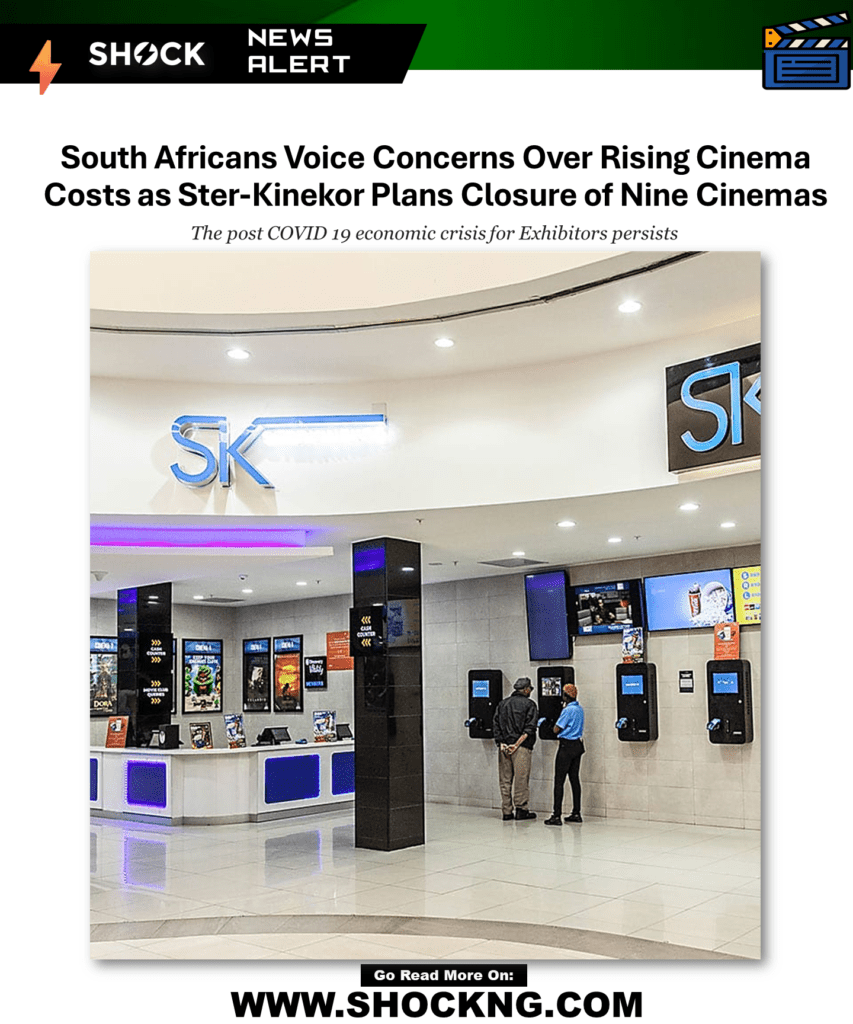The Story ⚡
Ster-Kinekor announces retrenchment of 236 employees and closure of nine cinema complexes.

Tell Me More
Ster-Kinekor’s decision to close nine cinemas across South Africa and lay off 236 employees has sparked varied reactions online.
The affected cinemas include three in KwaZulu-Natal, five in Gauteng, and one in the Western Cape, with additional locations under review. The company cited a decline in attendance due to economic challenges, frequent load shedding, and delays in Hollywood productions as contributing factors to the closures.
Social media responses reflected concerns over the affordability of cinema outings, with many users expressing frustration over high ticket prices and snack costs.
Some users shared their personal experiences, detailing expensive trips to the cinema and suggesting alternative entertainment options like streaming services. Criticisms were also directed at Ster-Kinekor’s business model, with users questioning its failure to adapt to changing market dynamics.



Key Background
Ster-Kinekor, the leading cinema company in South Africa, commands a significant share of the market, representing 60-65% of movie exhibitors nationwide.
With 43 cinema complexes boasting a total of 342 large-scale screens and nearly 48,000 seats, Ster-Kinekor offers a diverse range of viewing experiences, including 3D, IMAX, D-BOX, Kids’ Cinema, Nouveau, and Cine Prestige.
Across South Africa, it operates 124 state-of-the-art 3D screens and 129 cinemas. Additionally, the company extends its reach across Africa, with six cinema complexes featuring 33 screens and over 4,000 seats. Ster-Kinekor’s headquarters are located in the Ster-Kinekor Office Park in Sandton, Johannesburg.
Tangent
The closure of Ster-Kinekor cinemas raises concerns about the accessibility of South African films to local audiences. Independent filmmakers, in particular, rely on cinema chains like Ster-Kinekor to showcase their work and reach a wide audience. With fewer cinemas available, these filmmakers may struggle to secure screening opportunities for their films, limiting their ability to connect with viewers and generate revenue.
Additionally, the closure highlights the need for alternative distribution channels within the South African film industry.
Filmmakers may need to explore digital platforms like Netflix, community screenings, or partnerships with smaller theatres to ensure that their films continue to reach audiences despite the reduction in cinema options. This shift could lead to innovative approaches to film distribution and exhibition, fostering a more diverse and inclusive landscape for South African cinema.
In Summary
Ster-Kinekor’s closure of nine cinemas in South Africa amid declining attendance prompts concerns over rising cinema costs and accessibility to local films.

Thanks for Reading.
Shockng.com covers the big creators and players in the African film/TV industry and how they do business.
Let’s be friends on @Instagram



